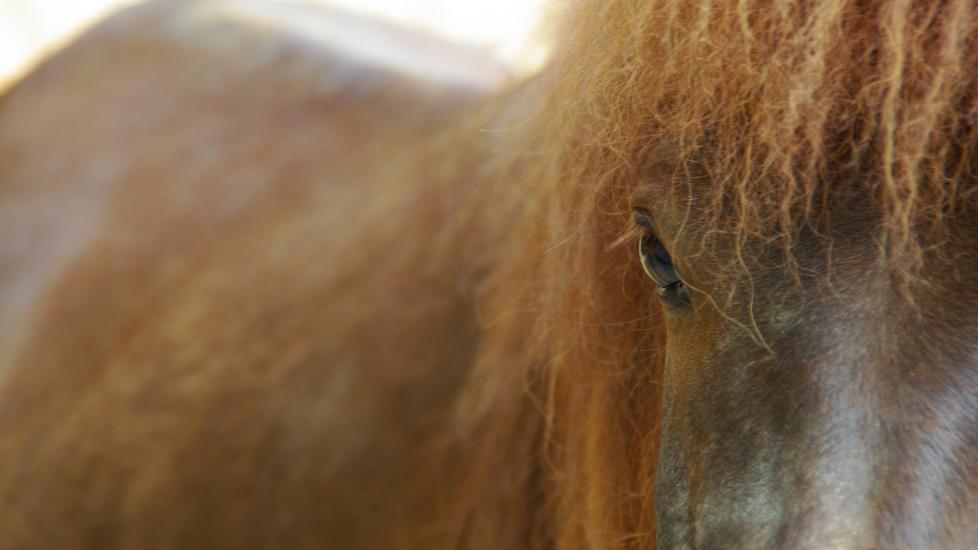Ringworm in Horses
What Is Ringworm in Horses?
Ringworm, also called dermatophytosis, is one of the most common skin diseases that affects humans and animals—including horses—today. Ringworm is caused by a fungus, primarily Trichophyton equinum or Trichopyton mentagrophytes, found in the environment that causes a ring-shaped crusty rash and hair loss.
Though ringworm is highly transmissible, it is easily treated and horses expect to have a full recovery.
Symptoms of Ringworm in Horses
In horses, ringworm typically occurs on the girth and saddle area. Typical symptoms of ringworm include:
-
Itchiness
-
Circular pattern of hair loss (rings)
-
Redness or rash
-
Scaly and crusty areas
Causes of Ringworm in Horses
Ringworm commonly lives on rodents and in the soil, and it’s transmitted easily to horses and other livestock. Typically, the fungus is transferred by direct contact of spores between horses, but also can be passed through contact with tack, grooming equipment, and clothing.
Ringworm can be seen at any time of the year, but winter is the most common time to see the condition, due to horses having a thicker coat and the use of blankets. The blankets along with the thicker, fuzzier coat can trap moisture near the skin of the horse setting up the perfect environment for skin infections, like ringworm.
Young and immunosuppressed horses are more likely to be affected by ringworm. Ringworm in horses may also appear as a secondary infection on an area of damaged skin.
How Veterinarians Diagnose Ringworm in Horses
Your veterinarian can diagnose ringworm by taking a hair sample and sending it off for a fungal culture test at a lab. There are a few skin problems that can mimic ringworm, so a definitive diagnosis is crucial for treatment.
Treatment of Ringworm in Horses
Mild ringworm cases may resolve on their own without treatment but could take a month or longer to heal. To avoid spreading the disease, it’s best to start treatment right away and quarantine the horse or horses affected.
Often, treatment consists of antifungal shampoo and topical therapies. Your veterinarian may also prescribe treatments such as griseofulvin and terbinafine in some cases. The use of disposable gloves may be advised to prevent the spread of ringworm to yourself or other animals.
Besides treating the horse, you must also disinfect any tack, blankets, grooming equipment, and other surfaces that may be contaminated. This can help limit further spread. Commonly used disinfectants are diluted bleach and povidone iodine.
It’s important to follow your primary veterinarian’s instructions for treatment and disinfecting equipment.
Recovery and Management of Ringworm in Horses
Ringworm typically has an excellent prognosis. Topical treatment is usually successful and hair regrowth is often seen in one to four weeks. If ringworm treatment is delayed or left untreated, horses may not recover for two to three months and may be in discomfort. Delayed treatment also risks spreading ringworm to other horses, animals, and people.
The incubation period (the time from exposure to disease and appearance of the first symptoms) is up to three weeks for ringworm. Due to this long incubation period, horses, animals, and people can all be exposed before clinical signs are observed.
Preventative measures should be in place for any new horses coming into the barn. It’s recommended to keep new horses separated from the resident population for a few weeks as you monitor for disease. It’s also best to not share tack and equipment between horses when possible but especially when first introducing a new horse to the barn.
Ringworm in Horses FAQs
What does ringworm in horses look like?
Ringworm generally looks like round lesions of hair loss that may be crusty.
Can you get ringworm from a horse?
Yes, ringworm can be passed from your horse to you—or from you to your horse. Practicing good hygiene and/or wearing disposable gloves is important when dealing with ringworm in horses.
How long is ringworm contagious in horses?
While there is no set amount of time your horse may be contagious with ringworm, it’s best to treat him as contagious until his skin is no longer scabby and the hair begins to heal back and appear normal.
Featured Image: Gap Im Hong/iStock via Getty Images Plus
